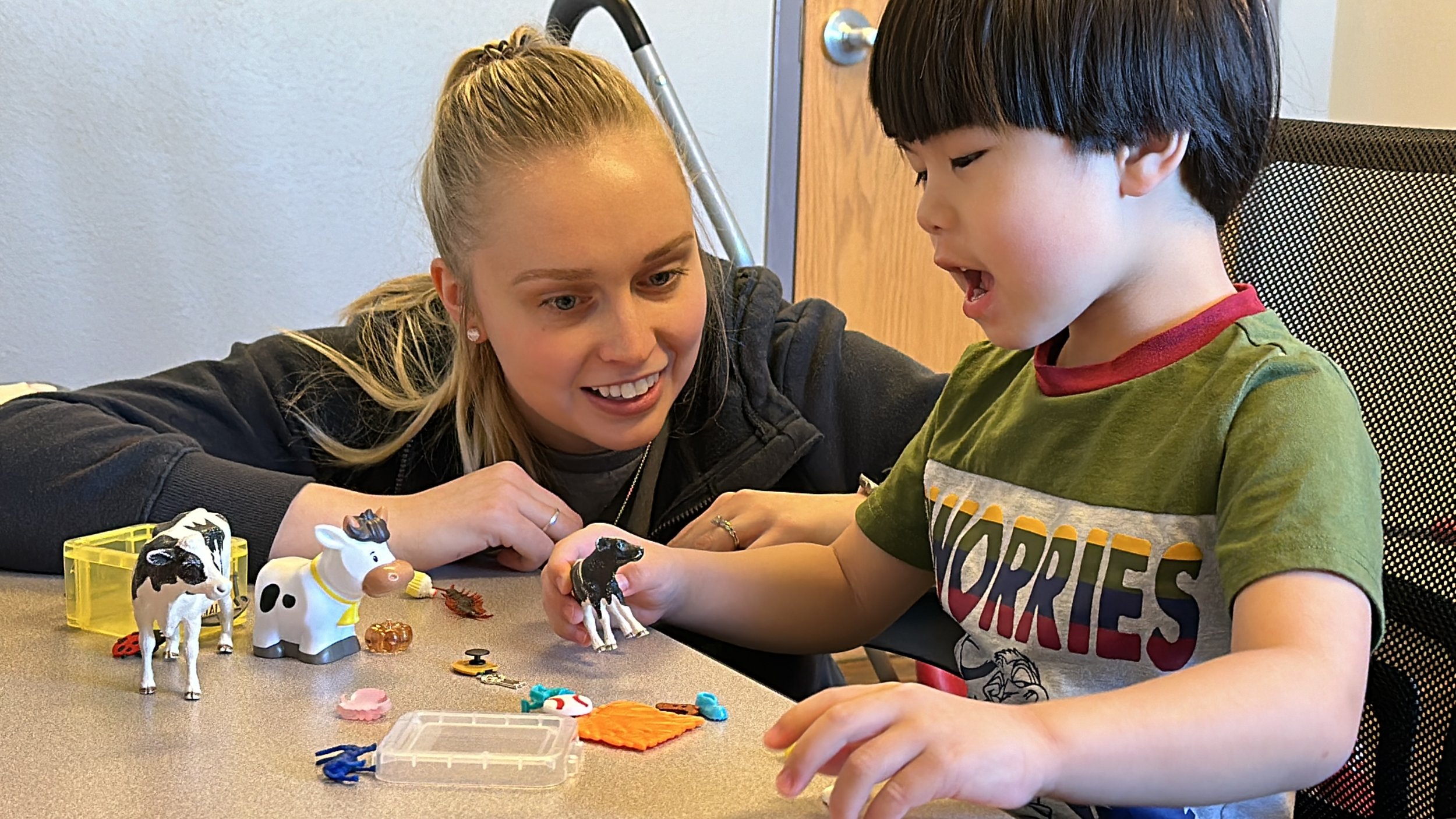Speech and Language Therapy
At Prairie Grit Therapy, our caring Speech-Language Pathologists (SLPs) are here to support your child’s communication journey every step of the way. We work closely with families to prevent, assess, and treat a wide range of communication challenges, including difficulties with understanding or expressing language, speech sounds, social communication, and even infant feeding. Whether your child has a diagnosis like Autism, Down Syndrome, Apraxia, or Auditory Processing Disorder, we are dedicated to helping them find their voice and connect with the world around them in a way that feels natural and empowering.
Therapy as unique as your child
At Prairie Grit Therapy, our Speech-Language Pathologists offer a range of specialized services designed to meet your child’s unique communication needs. We specialize in areas like Augmentative and Alternative Communication (AAC) for children who need extra support in expressing themselves, as well as Gestalt language processing for those developing language in a more holistic way. Our team also provides expert support for children with dyslexia, helping them improve reading, comprehension, and literacy skills. No matter the challenge, we’re here to provide compassionate, individualized care to help your child communicate and thrive.
-
If your child has trouble being understood, struggles to express their thoughts, is not meeting language milestones (such as saying words or forming sentences at the expected age), or seems frustrated when trying to communicate, it may be time to consult a speech-language pathologist (SLP). The therapist can assess whether therapy is needed.
-
Speech therapy sessions are typically interactive and play-based to engage children. The therapist will use activities, games, and tools tailored to your child’s age and communication needs. Sessions may focus on improving sound production, expanding vocabulary, enhancing social communication, or practicing using an AAC device.
-
That depends. You will need a referral from your family physician for a full evaluation. However, if you are unsure if occupational therapy is the right fit for your child we offer free and easy screenings to help. Screenings do not need a referral.
-
Yes, your child can receive outpatient speech therapy in addition to school-based therapy. School therapy focuses on supporting speech and language needs that impact academic success, while outpatient therapy can address broader or more specific goals, such as speech clarity, social communication, feeding, or language development. The two therapies can work together to enhance progress and address a wider range of needs.
-
Progress varies based on your child’s specific needs and the goals set during therapy. Some children may show improvement after a few months, while others might need ongoing therapy over a longer period. Your speech therapist will regularly assess your child’s progress and adjust the treatment plan to ensure the best outcomes.



